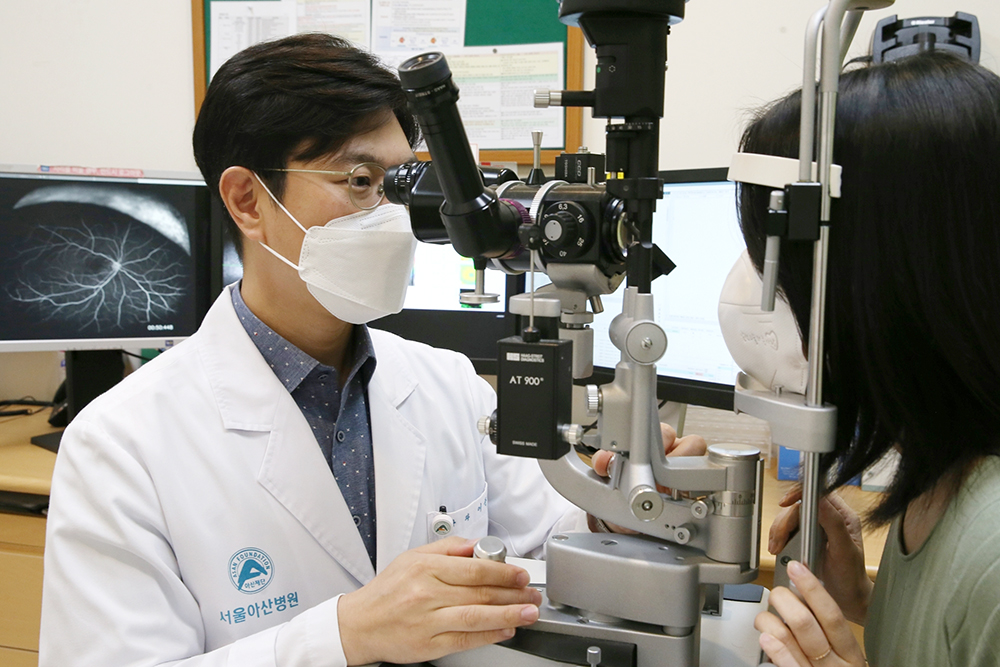-
- Global AMC MENU
- NEWS
- HEALTH
- PEOPLE
- Introduction

▲Professor Junyeop Lee is examining a central serous chorioretinopathy patient.
Central serous chorioretinopathy (CSC) is a medical condition characterized by the accumulation of fluid in the retina, typically affecting individuals aged 30 to 50. It leads to sudden blurry vision and a perception of objects appearing bent or with altered colors. Recently, a research team led by Professor Junyeop Lee from the Department of Ophthalmology, along with Research Associate Soo Jin Kim, successfully elucidated the pathogenesis of CSC and identified a biomarker capable of predicting disease progression or treatment response.
To investigate aqueous humor exosomes, the research team collected intraocular aqueous humor fluid from 42 subacute CSC patients and 20 healthy controls. The results revealed a significant increase in the levels of a specific microRNA, microRNA-184 (miR-184), compared to the control group. It was observed that miR-184 expression was even more elevated in patients who showed poor responses to anti-vascular endothelial growth factor antibody injections. The team developed a technique for the quantitative analysis of miR-184 expression in a patient's aqueous humor and found that miR-184 was present in CSC patients at levels 100 times higher than in the control group. Furthermore, the research team demonstrated that miR-184 regulated the expression of the STC2 gene, which is involved in the proliferation and movement of vascular endothelial cells, ultimately inhibiting angiogenesis.
These research findings have recently been published in the 'Journal of Nanobiotechnology,' a prestigious international journal in the field of nano-bio.












